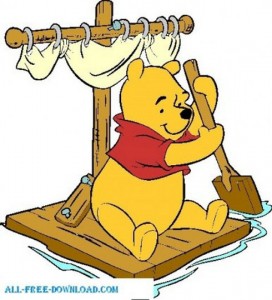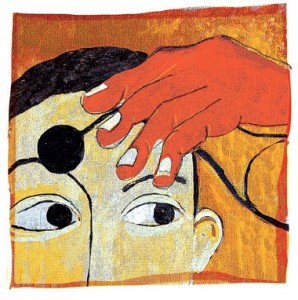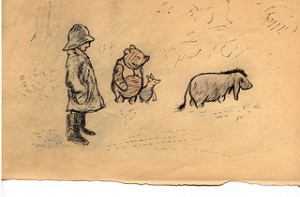
Today I am setting myself a less serious challenge. Can Winnie the Pooh teach us something about brain injury?
What can the simple words and philosophies of Winnie the Pooh and friends, by A.A. Milne teach us about supporting each other?
Can the wonderful language of Pooh guide us when supporting people with brain injury?
Look up what Winnie the Pooh has taught people on a Google search and it will include teaching us about life, about understanding, about Taoism, about media multitasking, even about sweepstakes!!
Here is my addition; looking at what Winnie the Pooh can teach us about supporting people with brain injury.
Below are quotes taken from Winnie the Pooh and other books by A.A. Milne with just a few of the lessons we could take. The more I read, the more I continue to find.
“It is more fun to talk with someone who doesn’t use long, difficult words but rather short, easy words like “What about lunch?”
- Keep things simple.
- Wherever possible use short simple sentences.
- Give one instruction at a time.
“Rivers know this: there is no hurry. We shall get there some day.”
- Recognise change can be slow after brain injury, but it does happen.
- Take a long term view.
- Work on small steps towards a long term goal.
“One of the advantages of being disorderly is that one is constantly making exciting discoveries.”
- Things generally go better when we look to find strengths and positives, rather than focussing on the difficulties.
- It is not about being Pollyanna it’s about looking at what in a negative situation can be built on.
“Good judgment comes from experience, and experience – well, that comes from poor judgment.”
- We all learn from making mistakes, the trick is to learn and change from the mistakes we make.
- After brain injury learning from mistakes may be more difficult and more support might be needed to learn from mistakes or initiate good judgement.
“Piglet sidled up to Pooh from behind. “Pooh?” he whispered. “Yes, Piglet?” “Nothing,” said Piglet, taking Pooh’s hand. “I just wanted to be sure of you.”
- Brain injury is complex and difficult to understand;
- Be supportive of each other.
- Be trustworthy, reliable, solid.
“If the person you are talking to doesn’t appear to be listening, be patient. It may simply be that he has a small piece of fluff in his ear.”
- It may be helpful to begin by investigating what that “small piece of fluff” is: What part of the brain is damaged? What is causing the behaviour or outcome?
- If you can not remove or fix it, try and work out if you can do anything to work around that “small piece of fluff”.
- Not listening, or not being able to change, may not be possible because of damage to a part of the brain. Be prepared to repeat however many times it takes to change behaviour.
“It’s snowing still,” said Eeyore gloomily. “So it is.” “And freezing.” “Is it?
“Yes,” said Eeyore. “However,” he said, brightening up a little, “we haven’t had an earthquake lately.”
- Look for what is working in any situation and build from there.
- Celebrate the small gains.
- Celebrate all gains.
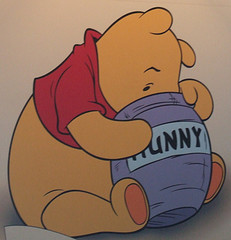
Image by Andrew Poole
“And how are you?” said Winnie-the-Pooh.Eeyore shook his head from side to side.”Not very how,” he said. “I don’t seem to have felt at all how for a long time.””Dear, dear,” said Pooh, “I’m sorry about that. Let’s have a look at you.”
- Empathy and compassion are important qualities.
- Work hard to put yourself in another person’s shoes.
- Develop strategies to help a person who has difficulty with empathy to put themselves in another’s shoes.
“Piglet noticed that even though he had a Very Small Heart, it could hold a rather large amount of Gratitude.”
- Encouraging appreciation and gratitude rather than blaming can help everyone involved.
- If it is difficult because of brain injury to express gratitude look at alternative ways – writing a message, making a small gift that says thanks, practicise words of thanks or appreciation.
“In a very little time they got to the corner of the field by the side of the pine wood where Eeyore’s house wasn’t any longer. ‘There!’ said Eeyore. ‘Not a stick of it left! Of course, I’ve still got all this snow to do what I like with. One mustn’t complain.”
- Look for creative ways to solve, or reframe problems
- Think about whether a negative can be built into a positive outcome.
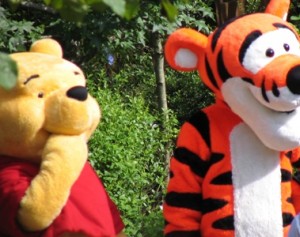
Image by Aaron “Bouncy trouncy flouncy pouncy fun fun fun fun fun. The most wonderful thing about tiggers is I’m the only one!”
- We should each value our uniqueness.
- For a person living with brain injury, they are a unique individual, and have a brain injury that will be different to every other person with a brain injury.
- See each person as an individual and create unique solutions tailored to each person.
“You can’t help respecting anybody who can spell TUESDAY, even if he doesn’t spell it right; but spelling isn’t everything. There are days when spelling Tuesday simply doesn’t count.”
- Focus on what’s important and useful
- Work out with the person living with brain injury and their family what is important for them and focus on that.
“Drinking your milk and talking at the same time may result in your having to be patted on the back and dried for quite a long time afterwords.”
- Look at what can build success.
- Don’t be afraid to try new strategies and don’t be afraid of mistakes.
- Pick yourself up and move on from mistakes
“The things that make me different are the things that make me.”
- Brain injury changes people and changes lives.
- Those changes are part of the person,
- They are not all a person is.
These quotes are from Goodreads, a site to “discover and share books you love… the world’s largest site for readers and book recommendations.”
For those of you interested in more about Winnie the Pooh, in addition to the book’s of A.A. Milne there is the gentle lovely book ‘The Tao of Pooh’ by author Benjamin Hoff. Benjamim uses the words and stories of Pooh and his friends to look at Taoism.
And Finally
I will leave the final words to those Christopher Robin shared with Winnie the Pooh”:
[box size=”large”]“Promise me you’ll always remember: You’re braver than you believe, and stronger than you seem, and smarter than you think.”[/box]
- Celebrate the small gains.
